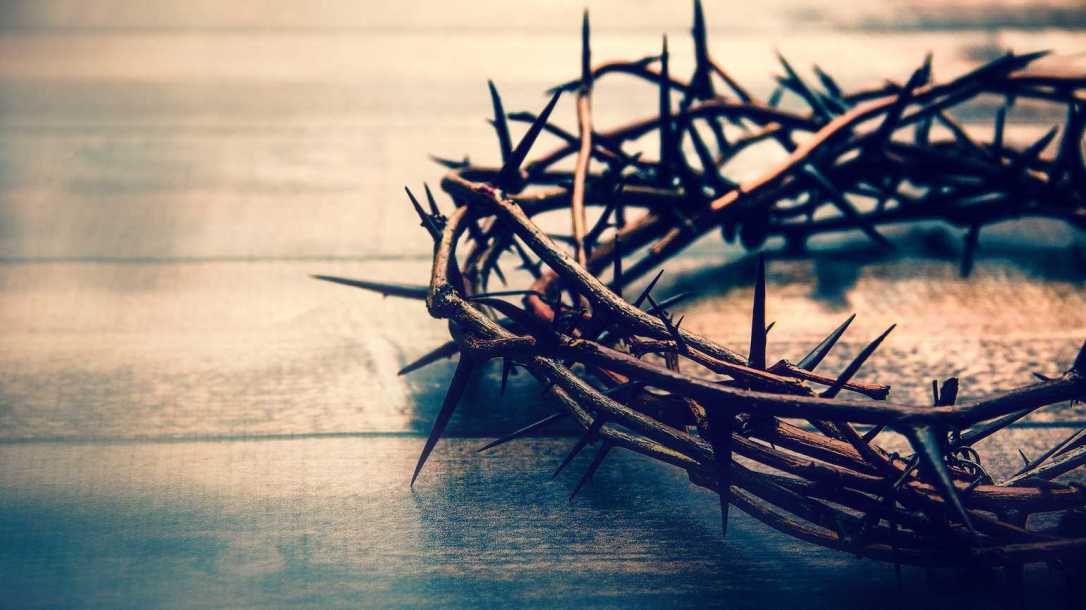
The Passage of Scripture that I contemplate on this Good Friday, and on most every Good Friday I can remember, is found in the Book of Isaiah.
He is despised and rejected by men,
A Man of sorrows and acquainted with grief.
And we hid, as it were, our faces from Him;
He was despised, and we did not esteem Him.
Surely He has borne our griefs
And carried our sorrows;
Yet we esteemed Him stricken,
Smitten by God, and afflicted.
But He was wounded for our transgressions,
He was bruised for our iniquities;
The chastisement for our peace was upon Him,
And by His stripes we are healed.
All we like sheep have gone astray;
We have turned, every one, to his own way;
And the Lord has laid on Him the iniquity of us all.
— Isaiah 53:3-7 NKJV
For me, Good Friday holds so many memories. I remember vividly trekking through the woods to find a thorn tree for our crown of thorns; finding just the right tree for Fred to cut down for building our cross; draping cloth on the cross; decorating our church’s Easter Chrismon tree; finding candles blooming dogwood; and finding fabric — Lenten purple, Good Friday black and Resurrection white.
Good Friday also holds for me many memories of worship — so many years leading worship as a pastor, leading worship during my time as minister of worship, leading services in our hospital chapel, holding sunrise services in our community. Honestly, after so many years, they all run together, and I only remember snippets of the times of worship that were most meaningful to me.
There is one memory that is so clear to me that it stands out above all others. I remember it in detail and I believe that this memory shaped my best thoughts about meaningful worship. I was only a young girl, but my grandmother (Yiayia) gave me authoritative instruction about how I should devoutly observe Holy Week. That usually meant going to church every day of Holy Week, but always, it meant Good Friday worship at our Holy Trinity + Holy Cross Greek Orthodox Church in Birmingham.
I wondered then about why the day when Christians commemorate Christ’s crucifixion was called Good Friday. The son of God was flogged, insulted and ordered to carry the cross on which he would be crucified. According to Mark’s Gospel, he endured the torment of crucifixion for some six hours from the third hour, at approximately 9 am, until his death at the ninth hour, corresponding to about 3 pm.
It’s difficult to see what is “good” about Good Friday. I studied on the name Good Friday and learned some interesting information. The day was called Long Friday by the Anglo-Saxons and is referred to as such in modern Danish. The Catholic Encyclopedia says that some sources see its origins in the term God’s Friday. In German the day is called Karfreitag, or Sorrowful Friday. In our Greek Orthodox faith, the day is known as the Holy and Great Friday in the Greek Orthodox liturgy.
In truth, that terrible Friday is called Good Friday because it eventually leads us to the Resurrection of Jesus, his victory over death and finally the celebration of resurrection, the very pinnacle of Christian celebrations. According to the Baltimore Catechism, Good Friday is good because Christ “showed His great love for man, and purchased for him every blessing.” Yes! But I must paraphrase that quotation to say “Christ showed His great love for us all, and purchased for us every blessing.“
Sometimes, we tend to rush headlong past the darkness of Christ’s passion, wanting a quicker path to the glorious resurrection. Which is where I begin with my childhood memories of Holy Week. Like most Orthodox Christians, my grandmother made sure we observed Good Friday with fasting, prayer, cleanliness, self-examination, confession and good works. We did not do any chores on Good Friday because we were to honor the day of mourning. I remember that our Good Friday meant a strict fast, no food all day. My Yiayia made up a mini fast for me that included small meals and just a little juice, always calling attention to the food she did not give me because I was fasting. What a teacher and spiritual guide Yiayia was to me! The long day of fasting went on.
On Great and Holy Friday our Orthodox Church commemorated the death of Christ on the Cross. We had to go to church first thing in the morning. In this service, our priest, Father Sam, raised up Christ’s Cross very high and then took it around the church three times. We kneeled the entire time and I wondered if everyone’s knees were hurting like mine were. Anyway, Yiayia had given me instructions. “Kneel correctly and don’t look around until the Cross passes our pew. Then look at the Cross and pray to be forgiven of your sins just like the thief on the Cross who confessed.” I didn’t think I had any sins, but I did it anyway. Father Sam finally finished walking around and took the Cross to the front of the church. Then Yiayia nudged me to move and, along with everyone in the whole church, we went to the Cross and kissed it. I wasn’t a great fan of Vespers so early in the morning, but we had to be there to see the unnailing of Christ from the Cross.
 Before I knew it, we were on our way back to church, even though I had plans for Friday afternoon. I felt something a little like sadness, I think, when Father Sam and several other men took Jesus from the Cross and placed him in a tomb. What I most remember was wondering why Father Sam was sprinkling the tomb with rosewater and then sprinkling all of us. The sweet smell of roses filled the sanctuary. At the end, we went behind Father Sam in a procession with the entire beautiful structure that was supposed to be the tomb of Jesus. It was like a funeral procession and it was sad. The older ladies in black clothes wept again. I think I felt a tear roll down my face, too. I think my tear came because Father Sam’s chants that day were the saddest, most sorrowful music I had ever heard.
Before I knew it, we were on our way back to church, even though I had plans for Friday afternoon. I felt something a little like sadness, I think, when Father Sam and several other men took Jesus from the Cross and placed him in a tomb. What I most remember was wondering why Father Sam was sprinkling the tomb with rosewater and then sprinkling all of us. The sweet smell of roses filled the sanctuary. At the end, we went behind Father Sam in a procession with the entire beautiful structure that was supposed to be the tomb of Jesus. It was like a funeral procession and it was sad. The older ladies in black clothes wept again. I think I felt a tear roll down my face, too. I think my tear came because Father Sam’s chants that day were the saddest, most sorrowful music I had ever heard.
The problem with all of it, I thought, is that we still had to fast all day and all the next day. I didn’t like that part very much, but as a dutiful child, I ate and drank the sparse morsels and juice that Yiayia served me without a single complaint. At least outwardly! Inside, I complained constantly and literally felt like I might starve.
And then it happened! In the dark of night, 11:00 pm, we went to the church — the most special liturgy of our church. Last minute instructions from Yiayia? “Sit up straight, kneel when I kneel, say all the prayers, no talking to your friends, no looking around to see who came, no crossing your legs, and don’t fall asleep” (even though we might be there until 1 am). if I broke any of those rules, Yiayia quietly, but forcefully, pinched my leg.
Father Sam took us first to the Passion of the Christ and his final moments on the cross. I remember having a bit of child like impatience with the very lengthy and heavy service. Yet today, I would give anything to sit up straight, legs uncrossed next to my Yiayia. I had no idea what was going on, but I was again stricken by the tears and the crying of the older ladies wearing black. I know now that they came there to mourn the death of Jesus. At that time, I just felt sad and kind of in awe in hearing their expressions of mourning.
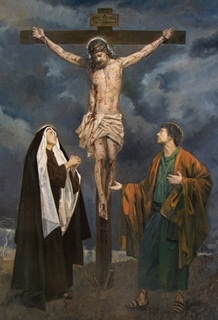
As the liturgy neared midnight, the sanctuary went dark and we sat in complete darkness for what seemed to me like an hour. Father Sam took light and gave it to those who were holding candles as he sang: “Come ye and receive light from the unwaning life, and glorify Christ, who arose from the dead,” and all the people join him in singing the hymn again and again.
Father Sam then led the entire congregation outside the church. We had begun the procession to the tomb. I was so short in a crowd of taller people that I was unsure what was going on.
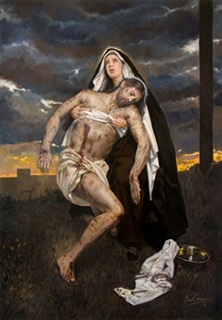
“Jesus is down from the cross and placed in the arms of his mother Mary”.
XIII Via Crucis Station for Guatemala.
Oil on canvas
http://www.raulberzosa.com
I did know that on the way to the tomb all the adults were solemn. But somehow I remembered that Father Sam would read the Gospel that gave us the Angel’s statement: “He is Risen; He is not here.” (Mark 16:1-8)
Then came the breathless moment — always the breathless moment — as the people waited for our priest to start the hymn of Resurrection. We sang with him this hymn, our most beloved hymn of Resurrection. “Christ has risen from the dead, by death trampling upon Death, and has bestowed life upon those in the tombs!” We sang it over and over again, holding our candles on a cold, dark night, facing the doors of our church
I remember Father Sam, holding the Paschal candle in his left hand, turned to face the wooden church doors and knocked three times on the closed doors with his hand-cross, saying in a loud voice, “Where is the King of glory?” Everyone responded, “He is not here for he has risen from the grave!”
This was the the high point of worship, but . . . We still had to sit quietly in the pews to hear the sermon of St. John Chrysostom. I was tired and very sleepy, but at long last, our Lenten exile had ended. The fasting was over. The penitential prayers were finished. The stone from the tomb was rolled away and we knew without any doubt that Christ had risen! He had risen indeed!
Today, wherever you are — near your loved ones or apart — know that the fear, anxiety and isolation of this virus will end. Let all of us pray for those who are ill; for the families that have lost loved ones; for medical professionals, chaplains, first responders and the hospital employees who clean and sanitize every area; for the scientists who are working to develop testing and vaccines; for the governors of every state; for those having financial difficulty; for churches facing financial struggles and for ministers who are creating worship alternatives; for all those to whom this virus is an enormous threat because of age, weakened immune system and health issues; for parents who must teach their children at home and for children who wonder where Easter is this year.
This has been a Lent to remember because it included the separation of families, schools and faith communities. Of all the Lents that have passed, I imagine we will remember this one. When we do, I hope we will remember all the compassionate deeds, all the new ways of being community and all the ways we have loved one another. After all, the command to love one another came from the Christ who faced betrayal, sorrow, death and ended his story with resurrection. That’s what all of us, people of resurrection do — suffer all of life’s slings and arrows and still end up resurrected — to newness of life.
Thanks be to God. Amen.
And thanks be to God for my Good Fridays, then and now. Amen.
I am including a video of the song, “Lamb of God” by Twila Paris for your Good Friday meditation time.

 What does Maundy mean, anyway? Maybe we need Biblical scholars to refresh us on its meaning.
What does Maundy mean, anyway? Maybe we need Biblical scholars to refresh us on its meaning. 

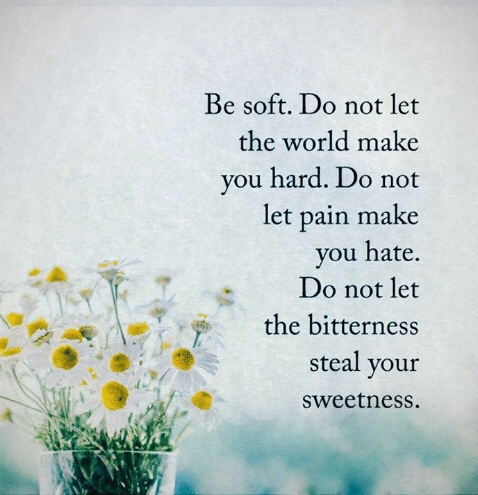
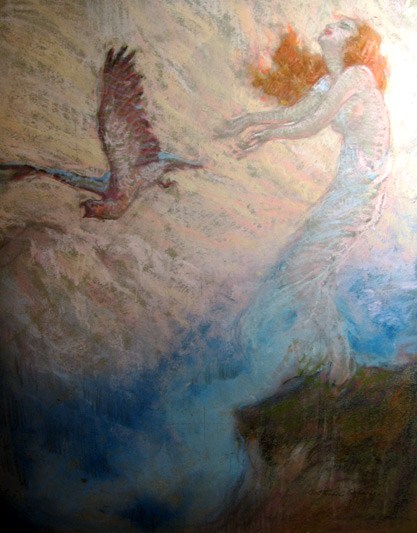 How do you live when you know what’s coming? Jesus might have asked himself that question when the crowds were shouting “Hosanna!” and making a big deal of the fact that he was riding into town on a donkey. The Gospel of Mark tells the story well.
How do you live when you know what’s coming? Jesus might have asked himself that question when the crowds were shouting “Hosanna!” and making a big deal of the fact that he was riding into town on a donkey. The Gospel of Mark tells the story well.